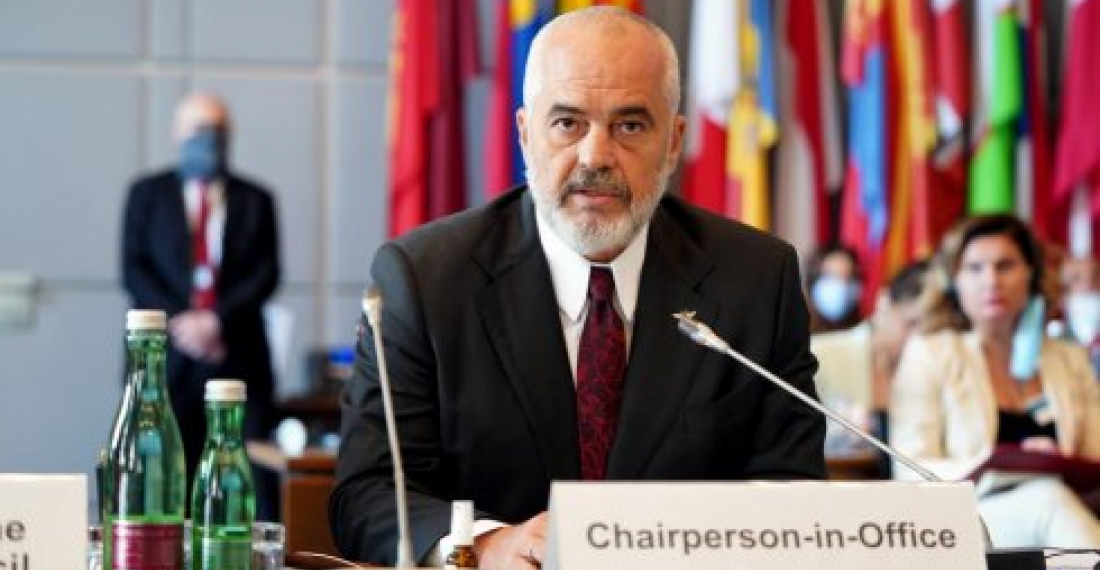To move forward will require mutual understanding and co-operation," said OSCE Chairperson-in-Office, Prime Minister and Minister for Europe and Foreign Affairs of Albania, Edi Rama, addressing the OSCE Permanent Council's special meeting today in Vienna on the situation in Belarus following the Presidential election on 9 August 2020.
"I am proposing that the OSCE becomes a facilitator of the necessary dialogue, to help Belarus out of this situation," said Rama, noting also the support of the incoming OSCE Chair, the Minister of Foreign Affairs of Sweden, Ann Linde. "We truly hope that there is a positive response to this offer from the Government of Belarus. I am ready to make it work - to engage, to listen, to understand and to support, in every possible way I can."
"The Chairmanship will work tirelessly and patiently to create conditions conducive to a helpful process," Rama said. "But there has to be an immediate and significant improvement in the national human rights situation. Not sometime in the future, but right now, with no ‘ifs or buts'. It is inconceivable to believe there can be a credible process of dialogue if one side appears keen to undo the very essence of a pluralistic society."
Rama underlined that the OSCE would not impose itself, take sides, nor interfere in the internal affairs of Belarus. "The situation must be resolved in Minsk and among the people of Belarus, in full respect for their sovereignty, their independence and their human rights," he said, adding that the proposal is "the OSCE volunteering itself, its good offices and its goodwill for Belarus to make use of."
Rama also highlighted that the OSCE is uniquely placed to support Belarus - an Organization which has a well-established mandate relevant to democracy, human rights and conflict prevention, which prides itself on being inclusive, which bridges east and west, and which values Belarus as an active, sovereign and equal member.
Rama ended his address with a dual appeal: "To the Belarus authorities: please, give this offer a chance. Seize this moment of opportunity for Belarus to move from confrontation and strife to dialogue and reconciliation. To all OSCE members, let us try to make this work, hard though we know this will be. We owe it to the men, women and children of Belarus, to have their voices heard, so that they, through dialogue not violence, can determine their own future."
source: Commonspace.eu with OSCE.org
photo: OSCE Chairperson-in-Office, Albania’s Prime Minister and Minister for Europe and Foreign Affairs, Edi Rama, addresses the OSCE Permanent Council, Vienna, 28 August 2020. (picture courtesy of the OSCE)







